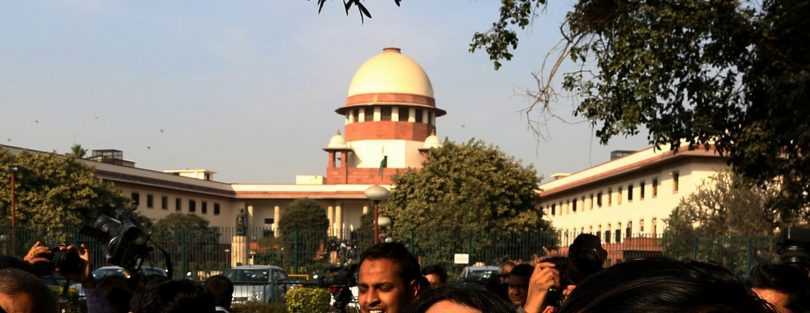Additional Solicitor General P.S. Narasimha has told the five-judge Constitutionution headed by Justice Dipak Misra that “Data is an extension of my personality, footsteps of my life and intimate to me and resides in Article 21. Data is an extension of my personality. Anything that can impinge on data – that is my own – impinges on my right.”
The Centre told the Supreme Court on Friday that the data belonging to an individual was intimate to and an extension of one’s personality that resides in Article 21 of the Constitution guaranteeing the protection of life and personal liberty.
ASG Marasinha advocated a mechanism through which online messaging service WhatsApp and other similar or social networking sites like Facebook, etc could be regulated. He told the bench that “It has to be regulated, it will be regulated.”
Interestingly, the position which the Centre took on Friday was in resistance to the position it toon in front of the nine-judge constitution bench where it is resisting all the suggestions that right to privacy is a fundamental right residing in Article 21 and other fundamental rights including Article 14 and 19. The five judges on the bench include Justice A.k.Sikri, Justice Mohan M. Shantanagoudar, Justice Dipak Misra, Justice A.M. Khanwilkar and Justice Amitava Roy.
Narasimha told the five-judges Constitution bench by taking forward his point that the data of an individual is an extension of his/her personality, he said that If the data is a good product and if it is, them whom to consist the proprietorial right. Then can I leave it – either by commercial or by contract or without commercial consideration?”
Shreya Sethi and Karmanya Singh Sareen have registered a plea challenging Delhi High Court’s September 23, 2016, order which allows Whatsapp to implement its new privacy policy but stops it from sharing data which was collected from all its users until 25th September 2016, with Facebook or any other related company.
Congress leader Kapil Sibal appeared for Whatsapp and Harish Salve appeared for the petitioners in the case locking horns over the issue of online messaging service accessing the messages. However, the allegation has been denied by Whatsapp.
The bench told Whatsapp that the later has the facilities and it can not impose arbitrary conditions under the contract to avail those services to the customers, you can’t restrict and control the choice of any individual by bringing a contract.
“Why can’t a service provider doing service of such a magnitude be brought under public subservience,” Justice Mishra said insinuating that the “Data is required to be protected and the nitty- gritty can’t be done by the government.” The bench said that it was told that WhatsApp is a non-state actor. The hearing was adjourned because the court felt that the matter would involve the question of the right to privacy – which is being adjudicated by the nine-judge bench.
The nine-judge bench of the Supreme Court is examining whether privacy a right was fundamental and if so then whether it should be placed in Article 19, Article 21 or Article 14 or in the entire chapter on fundamental rights. The bench will also be examining the question that what would happen to Right to Privacy vis-a-vis non-State entities. The next hearing on the matter is on September 6.

